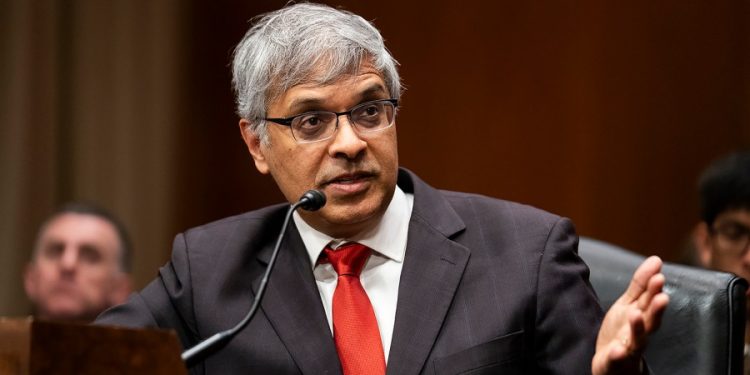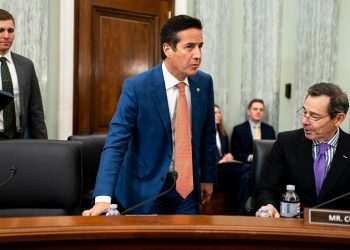Hundreds of staffers from across the National Institutes of Health (NIH) are speaking out against the politicization of their research and termination of their work while demanding that the drastic changes made at the agency be walked back.
In a letter addressed to NIH Director Jay Bhattacharya, more than 2,000 signatories stated, “we dissent to Administration policies that undermine the NIH mission, waste public resources, and harm the health of Americans and people across the globe.”
The letter was titled “The Bethesda Declaration” in reference to where NIH’s campus is located.
The signatories cited Bhattacharya’s stated commitment to academic freedom that he made in April and called on him to push back against the changes Trump administration has implemented at NIH under his leadership.
“Academic freedom should not be applied selectively based on political ideology. To achieve political aims, NIH has targeted multiple universities with indiscriminate grant terminations, payment freezes for ongoing research, and blanket holds on awards regardless of the quality, progress, or impact of the science,” they wrote.
They pointed to U.S. law and prior research that has shown that the participation of diverse populations in studies is necessary for NIH’s work. The NIH staffers further blasted the canceling of nearly completed studies.
“Ending a $5 million research study when it is 80% complete does not save $1 million, it wastes $4 million,” they wrote.
The researchers called on Bhattacharya to restore foreign collaborations with the global scientific community, put independent peer reviews back in place, bring back terminated NIH staffers and rethink the 15 percent cap on indirect study costs that the Trump administration enacted.
“Combined, these actions have resulted in an unprecedented reduction in NIH spending that does not reflect efficiency but rather a dramatic reduction in life-saving research,” they stated. “Some may use the false impression that NIH funding is not needed to justify the draconian cuts proposed in the President’s Budget. This spending slowdown reflects a failure of your legal duty to use congressionally-appropriated funds for critical NIH research.”
NIH research is not solely centered in Bethesda. The agency is responsible for funding research projects across the country and abroad. Numerous lawsuits have been filed to combat the pulling back of billions of dollars in NIH funding. Last week, a federal judge allowed a suit filed by university researchers and public health groups challenging the cuts to move forward.
Bhattacharya responded to the letter on the social media platform X.
“We all want @NIH to succeed and I believe that dissent in science is productive. However, the Bethesda Declaration has some fundamental misconceptions about the policy directions NIH has taken in recent months,” he wrote.
Bhattacharya said the actions taken at NIH have been to “remove ideological influence from science” and further argued the agency hasn’t halted international scientific collaboration but is instead “ensuring accountability.”
“Claims that NIH is undermining peer review are misunderstood. We’re expanding access to publishing while strengthening transparency, rigor, and reproducibility in NIH-funded research,” he wrote. “Lastly, we are reviewing each termination case carefully and some individuals have already been reinstated. As NIH priorities evolve, so must our staffing to stay mission-focused and responsibly manage taxpayer dollars.’















